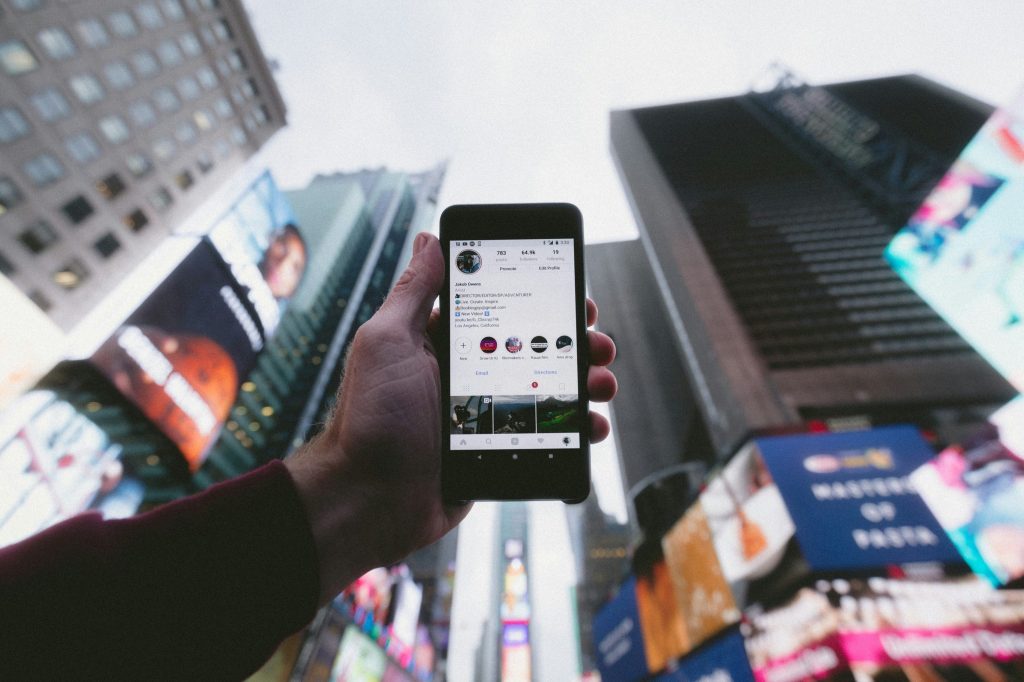
How Social Media Is Influencing Customer Behaviour
In recent years, consumers and brands alike have become reliant on social media, which has transformed the way we connect, communicate, and purchase products. Social media platforms like Instagram, Facebook, TikTok, and YouTube have evolved beyond simple interaction spaces into powerful tools for shaping customer behaviour. Brands now leverage social media influence to understand consumer decisions, drive sales, and gather valuable market insights.

What is Social Media and Consumer Behaviour?
Social media and consumer behaviour are where digital platforms meet human psychology and purchasing decisions. Consumer behaviour encompasses the processes of browsing, selecting, and making purchasing decisions influenced by social media content. When combined with social media’s persuasive influences, social media platforms are reshaping how customers evaluate, buy, and discover products and services. The traditional marketing funnel has evolved into a more fluid process that occurs at every stage of the buyer’s journey.
What Are the Factors Influencing Consumer Behaviour?
Consumer behaviour is influenced by numerous factors, from both psychological and technological aspects.
As one researcher described it, consumer behaviour “unfolds like a kaleidoscope, shifting and shimmering across the digital landscape”.
Peer influences
When customers look through reviews, comments, likes, and shares, it creates a psychological validation that encourages the customer to make the purchase. Social media influencers and celebrity partnerships amplify this effect by adding an extra layer of credibility for their followers.
Emotional connections
Brands love to create an emotional connection through storytelling and user-generated content. These emotional factors trigger decisions and often outweigh the rational decision-making processes, leading consumers to choose brands that align with their values and goals.
Convenience and accessibility
The integration of new features on social media platforms makes it easier for consumers to discover, research, and purchase without leaving their preferred platform. This leads to impulse buying and more people shopping through social media.
Algorithm and personalisation
Advanced algorithms will set the content tailored to their interests, previous searches, behaviours, and characteristics. This personalisation will create more relevant experiences and filter content based on existing preferences.
Personal and cultural factors
Age, lifestyle, culture, and personality can affect preferences, and social media can expose audiences to new trends, global lifestyles, and new products.
Future Trends in Social Media–Driven Consumer Behaviour
With the rise of social media influence rapidly evolving, we’ll see more technologically advanced concepts that are changing consumer expectations. So, what can we expect?
- AI and personalisation: With algorithms taking over, the touch of AI will enable even more sophisticated customer behaviour analysis, allowing brands to predict and influence purchasing habits with accuracy.
- Virtual shopping: AR technology is starting to be integrated into social media platforms and websites to eliminate barriers to online shopping. Virtual try-ons for products like glasses, makeup, and clothes will bridge this gap, enhancing the overall online and offline experiences.
- Micro-influencers: Smaller, more engaged communities deliver higher engagement rates and trust, creating more authentic connections and boosting customer behaviour analysis.
- Ethical marketing: The growing concerns of the environment demonstrate awareness and commitment to sustainability. Consumer behaviour will drive interest in brands that show change, fostering loyalty.
How Does Social Media Impact Consumer Behaviour?
Social media shapes customer behaviour, brand discovery, and engagement. In fact, 70% of consumers are swayed by its influence when making purchasing choices, with 54% meticulously researching products on these platforms before making a purchase.
Awareness
Social media is the biggest advantage for discovering new brands and products, from local independent brands to established brands. The organic nature of content sharing means products can achieve viral awareness through authentic user recommendations rather than paid promotions alone.
Engagement
Consumers rely on social media and thorough research when seeking opinions, such as looking up reviews from influencers and seeing how the brand connects with their audiences. Customer behaviour analysis shows that social media reviews and discussions often carry more weight than official product descriptions or traditional advertising materials.
Social proof
Social proof is one of the powerful ways to analyse consumer behaviour on social media platforms, from detailed reviews and testimonials. Plus, endorsements build that trust and validate purchases.
Post-purchase behaviour
Social media extends the customer relationship beyond the initial purchase, creating opportunities for ongoing engagement, repeat purchases, and advocacy.
What Are the Top Tips Influencing Consumer Behaviour to Facilitate Social Selling?
Leveraging social media is an effective strategy and involves planning and understanding customer behaviour. Here are some handy tips to consider that balance authenticity with objectives.
- Engaging content: Develop engaging content that encourages interaction, sharing, and starting a conversation. Utilise storytelling techniques to maximise your content that creates memorable impressions rather than just showing off the product or service. Use polls to gather information or do a live stream for more engagement opportunities.
- Influencer partnerships: Collaborating with influencers will surely give you that extra visibility and allow you to tap into their audiences. Focusing on building relationships with social media influencers that align with your values and goals can deliver better results.
- Promotions and discounts: Offer exclusive promotions or discounts. Not only does this reward your followers but encourages them to make purchasing decisions with a limited-time offer.
- Social commerce features: Take advantage of integrated shopping features available on social media platforms like TikTok Shop or Facebook Marketplace. Simple, seamless transactions from discovery to purchase make use of impulse buying behaviours while the interest is high.
Take the Next Step Towards a Successful Global Career in Marketing With Our BSc or MSc Business Management (Marketing) and MSc Social Media and Influencer Marketing Programmes.
Ready to take on a global career in marketing? Consider Gisma University of Applied Sciences’ degrees in
- MSc Social Media and Influencer Marketing
- BSc Business Management and Marketing
- MSc Business Management and Marketing
These specialised programmes are specifically designed for the modern digital marketing landscape. All programmes feature industry connections, practical projects, and opportunities to work with real brands on social media campaigns.
Gisma’s locations in Berlin and Potsdam with connections to the industry offer unique advantages, with access to Europe’s business ecosystem, multinational corporations, and innovative startups. Graduates benefit from Germany’s strong economy and the skills they need to navigate the complex world of social media-driven consumer behaviour.
FAQs
How does social media impact customer buying decisions?
Social media impacts customer buying decisions in multiple ways. Social proof, via reviews, recommendations, and user-generated content, provides validation before making a purchase. Social media influencer marketing is also an effective way to build trust, as influencers can reach audiences that align with a brand’s target demographic.
What role does social proof play in online purchases?
Social proof serves as a critical decision-making factor in online purchases, especially where customers cannot physically examine the product before buying. Reviews, testimonials, and influencer content are a collective validation system that helps potential buyers assess product or service quality and suitability. It’s a powerful effect that enhances trust and increases conversions for the brand.
Can social media create brand loyalty?
Yes. Social media is one of the most effective ways to create brand loyalty through community building, consistent engagement, and authentic brand-customer relationship development. Brands that use social media platforms successfully can provide valuable personalised content, respond genuinely to customer feedback and develop emotional connections to build long-term loyalty.
How does user-generated content influence potential buyers?
User-generated content influences potential buyers by providing authentic endorsements, product demonstrations, and peer-to-peer testimonials, making consumers more confident in their decisions. It can make the materials feel genuine and unbiased in comparison to branded content.

About the Author James
Want to explore more?
Popular Blogs
Best Christmas Markets in Potsdam, Germany
Top study spots in and around Berlin
The best places to travel in Germany as a student